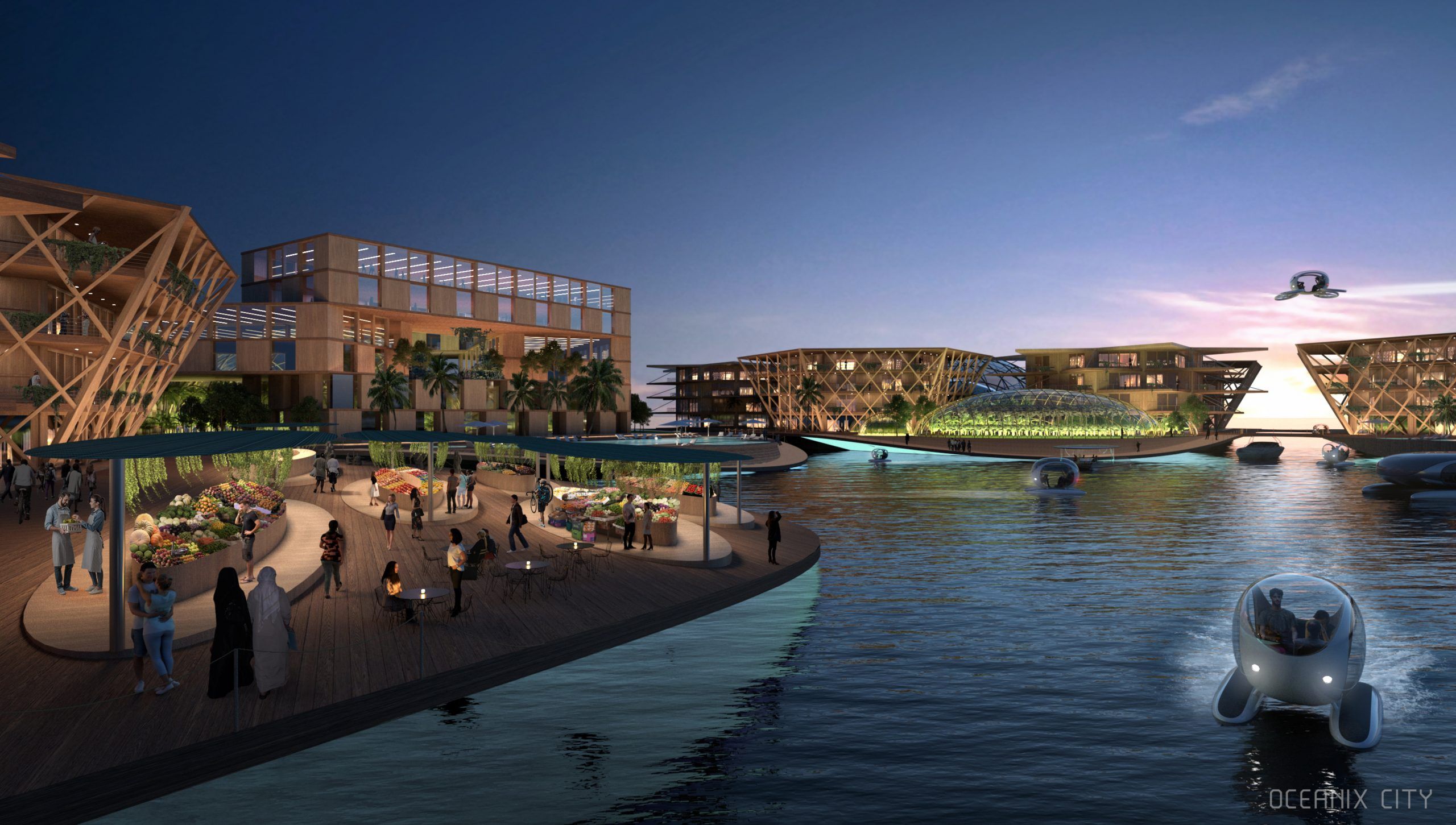Two in five of the world’s population live less than 100 kilometres from the coast, and one in ten live less than ten metres above sea level. As oceans rise and coastlines erode, millions of people will be displaced in the coming decades. This is the problem that UN-Habitat and its partners hope to solve.
One such solution is Oceanix City, proposed by Oceanix and Danish design firm Bjarke Ingels Group, is described in a press release as “the world’s first sustainable floating city for 10 thousand residents”. It is a truly utopian dream, presenting a radical solution to one of the most pressing global problems.
Safe as houses
Oceanix City involves a cluster of floating platforms, with each island housing 300 people. Grouped together, six platforms form a village, with villages grouping to form a city. These proposed cities are self-sustained, function on renewable energy sources and implement zero-waste systems.
Wave-breaking outposts would protect them from the worst of the weather, and they are also designed to withstand category five hurricanes. The biggest fear for many would simply be how to cope with an entirely plant-based diet!
Accessible and affordable
Part of the dream of Oceanix co-founder Marc Collins Chen is that such a city would provide shelter for all who needed it.
“It is our goal to make sure sustainable floating cities are affordable and available to all coastal areas in need. They should not become a privilege of the rich,” he stated during the presentation.















